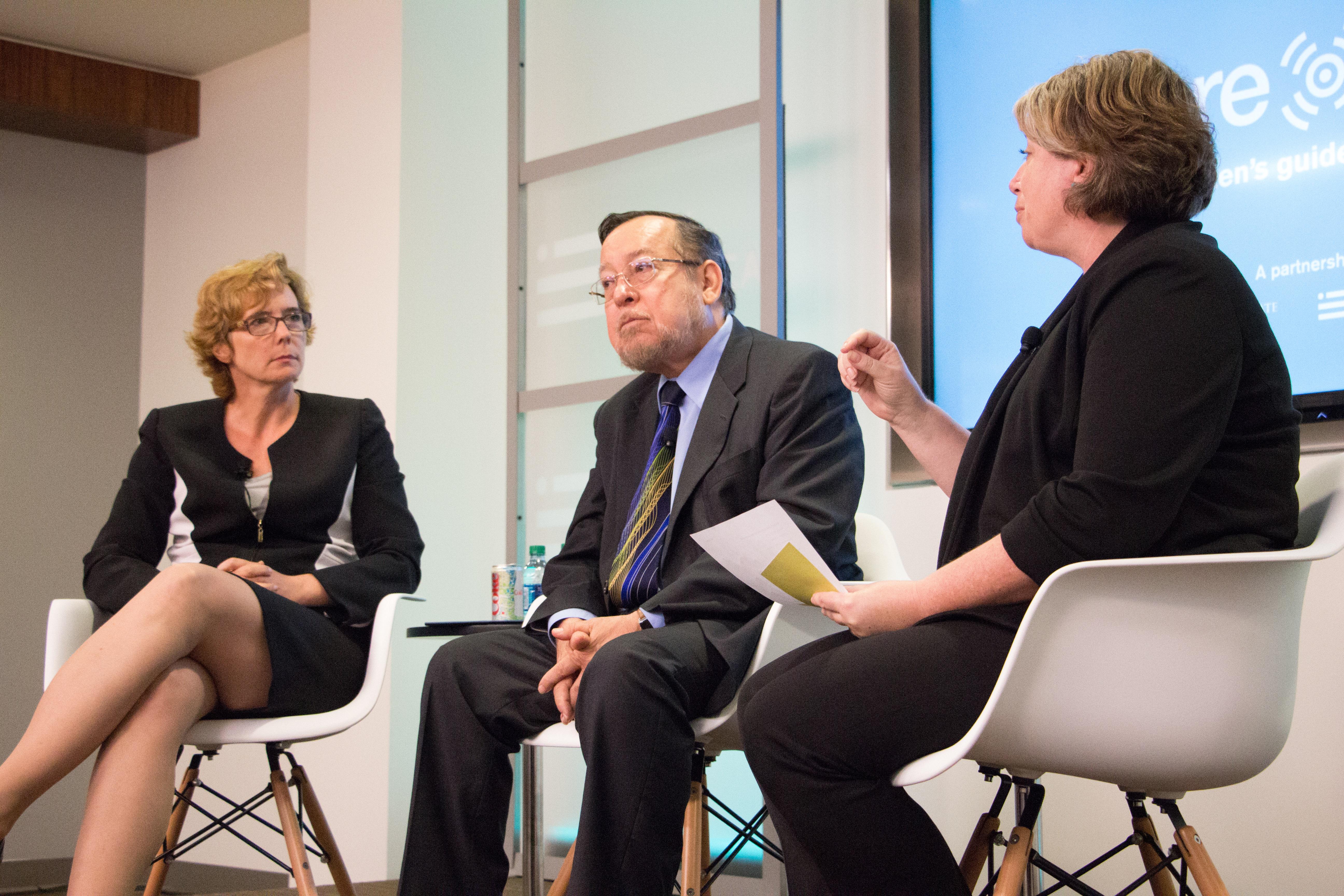North America already has some of the key ingredients to make the continent the world’s dominant energy superpower: The U.S. is a leader in alternative energy research. Canada has seen a steady increase in oil production. And Mexico has enacted historic energy reforms, beginning in December 2013, when President Enrique Peña Nieto amended Mexico’s constitution, opening the oil and gas energy market to private, foreign, and local investors.
Together, these three countries have the opportunity to set new standards for environmental responsibility and sustainability. Future Tense—a partnership of Slate, New America, and Arizona State University—and the Wilson Center’s Canada Institute took the opportunity to explore North America’s energy leadership potential in an event in Washington, D.C., on July 26.
In June, Canada hosted the annual North American Leaders Summit, where the heads of state for Canada, Mexico, and the United States discussed the shared interests and concerns of the three neighboring countries. This year, the leaders—or rather the “Three Amigos”—expressed their determination to lead the world to a cleaner, more prosperous future by jointly committing to the North American Climate, Clean Energy, and Environment Partnership. The agreement outlines measurable goals and identifies paths to generating at least 50 percent of North American energy from clean power by 2025.
Much of the conversation centered on the Leaders Summit, and what must happen to meet the North American Climate, Clean Energy, and Environment Partnership’s ambitious goals. In a presentation, Hector Moreira, director of the energy model for Mexico initiatives at Arizona State University and commissioner of the Mexican National Commission of Hydrocarbons, argued that the world’s increasing dependence on electricity has created an emerging energy paradigm that favors North America. The continent happens to have extensive natural gas reserves across all three countries, which can be used for electricity generation. Furthermore, North America boasts some of the largest automotive companies, a solid research base for renewable energy, and entrepreneurial capabilities.
But Laura Dawson, director of the Canada Institute at the Wilson Center, pointed out something critical: “As we celebrate our energy advantages, we need to get real about climate change policy.” Dawson explained that Canada has been working very hard to change its policies in order to influence emissions output—but a climate-friendly agenda can make it an expensive investment destination. Mexico and the United States need to enact similar policies so that Canada doesn’t have an unfair disadvantage when it comes to attracting business.
Canada is ahead of its southern neighbors in another regard, too. At the 2016 Summit, each country agreed to source 50 percent of its energy production from renewable sources by 2025. Yet, as Dawson pointed out, Canada is already generating 59 percent of its electricity from renewable sources. The energy structure of each country is different, as are the political pressures, making it a challenge to impose consistent policies across the board. The key, according to the speakers, is to focus on objectives instead of trying to adjust strategies already in place. They suggest addressing how the three countries’ infrastructure systems work together, emphasizing closer integration of the electricity grid, roads, and gas lines.
Sharon Burke, a senior adviser for international security and resource security at New America and former assistant secretary of defense for operational energy, emphasized that fracking is essential to the cause of making natural gas an important part of North America’s regional economy. If done correctly, it might bring back jobs and help reduce reliance on dirty fuels. If not, the consequences could be horrific. According to Burke, we’ll need proper regulation that begins with effective sharing of information that concerns the three nation’s strategic efforts to deploy fracking.
Despite being coined the “Three Amigos,” Moreira shared a saying: “Mexico and the U.S. are brothers”—because “you choose your friends; you don’t choose your brothers.” But together, Canada, Mexico, and the United States could establish policies that will lead the rest of the world to a cleaner, more sustainable future—with economic benefit to boot.
